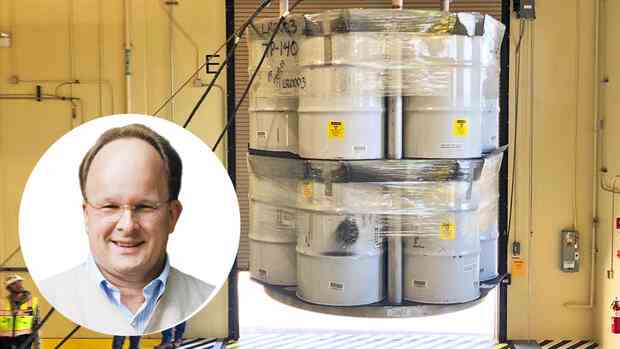In English there is the beautiful maxim: “If you can’t beat them, join ’em.” This is how the EU finally seems to be behaving in response to the Inflation Reduction Act of the Biden government. Nothing would go against the interests of the German economy more than the talk of a transatlantic trade war, which Paris has been pushing for several months.
This is a problem especially for German medium-sized companies with their high innovative ability but limited financial resources. In contrast to large German corporations, these companies cannot simply relocate their subsidized production to the USA.
Above all, it is high time we recognized the real challenge posed by the United States. This is not based on a subsidy competition, but essentially on pursuing an “all-in” strategy when it comes to energy and the environment – i.e. being open to technology. That is the sine qua non for a promising implementation of the much-cited European Green Deal.
European companies do not attract subsidies to the US, but lower energy costs
In contrast, the officials in Brussels are sticking to their taxonomy strategy, i.e. the standards for sustainable management. Germany operates even more narrowly under the dictates of the Greens, who rule out the use of many technologies on German soil (e.g. nuclear power plants or the capture and storage of CO2 (CCS)).
Which, by the way, would mean that we would be abdicating our responsibility for all the principle-riding with a view to the rest of the world. Developing countries in particular need German technological innovations in order to make climate change manageable.
>> Read here: Two economists in a debate – How much EU industrial policy should there be?
Currently, the German approach presents itself as a dangerous mixture of arrogance, narrow-mindedness, a sense of mission and deep but ultimately impractical convictions.
You have to be able to afford such an approach economically. It could be justified, for example, if we were well ahead of the USA in terms of general competitiveness or economic growth.
Or if the EU countries had already gone a long way when it came to renewable energies, or if they had at least set a super pace in converting the energy supply. But despite some progress and almost a year after February 24, 2022, there can be no talk of either one or the other.
In addition, energy prices in Germany will be twice, if not three times as high as in the USA in the longer term. This has a clear consequence: many of the concepts previously pursued by companies, which are based on the use of natural gas as a cheap transitional technology, are now being called into question, at least on our continent, for cost and capacity reasons.
For the companies that can relocate their projects, this means that they will preferably go to the USA. However, this does not happen, as is so often claimed in Germany, due to the unfair competitive advantages offered by the USA.
The US is simply pragmatic when it comes to energy policy
The opposite is the case: compared to the ideology-driven technology paternalism of the red-green part of the traffic light government under Olaf Scholz, pure pragmatism prevails in the USA in energy and environmental policy.
The extent of this is indicated by the fact that a large part of the renewable energy capacity is located in conservative US states such as Texas. The reason? This is good money to be made on otherwise fallow land.
>> Read also: Von der Leyen wants to strengthen the EU in competition with China and the USA
In addition, when it comes to industrial and digital innovation, the US has a healthy belief in the maxim “Throw money at it – and it will stick”.
The belief that a strict EU taxonomy, coupled in Germany with a particularly dogmatic energy policy, can create an innovation machine is proving to be more and more a fallacy.
Our innovative companies will increasingly free themselves from this by relocating to the USA. They don’t do this to avoid the target, but to get there faster. Battery cell research is just the beginning.
As far as the ongoing perfection of the EU taxonomy is concerned, one thing in particular stands out in view of the 60th anniversary of the Élysée Treaty: the enthusiasm for taxonomy is probably the one thing that the German and French governments have in common in the midst of an otherwise rather strained relationship .
It satisfies both French dirigisme and late Prussian rigorism. The French, because of their insistence on emission-free nuclear energy, are much more open to technology than the German side.
About the author: Stephan-Götz Richter is editor-in-chief of the online magazine “The Globalist” and director of the Global Ideas Center in Berlin.
More: Response to “Inflation Reduction Act” – Is the EU threatened with fragmentation?
